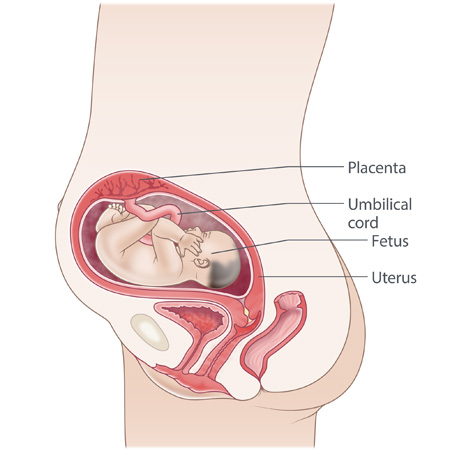
The 26th Week of Pregnancy: A Comprehensive Guide
The 26th week of pregnancy marks the beginning of the third trimester, a period of significant growth and development for both the mother and the baby. This week, the baby’s organs are fully formed, and they begin to prepare for life outside the womb. The mother’s body also undergoes several changes to accommodate the growing fetus.
Fetal Development
At 26 weeks, the baby is approximately 14 inches long and weighs about 2 pounds. The baby’s head is still disproportionately large, but the body is rapidly filling out.
- Brain Development: The baby’s brain is rapidly developing, and the neural pathways are becoming more complex. The baby can now recognize familiar sounds, such as the mother’s voice.
- Lung Development: The baby’s lungs are still immature, but they are beginning to produce surfactant, a substance that helps the lungs expand.
- Eye Development: The baby’s eyes are fully formed, and they can now open and close. The baby may be able to distinguish between light and dark.
- Movement: The baby is very active at this stage, and the mother may feel frequent kicks and jabs.
- Positioning: The baby is usually head-down at this point, but it may still be able to move around.
Maternal Changes
The mother’s body undergoes several changes during the 26th week of pregnancy:
- Uterus: The uterus continues to grow, and it is now about the size of a soccer ball. The mother may feel some discomfort or pressure in the abdomen.
- Abdomen: The abdomen is becoming increasingly prominent, and the mother may need to start wearing maternity clothes.
- Breasts: The breasts are preparing for breastfeeding, and the mother may notice increased breast tenderness and enlargement.
- Weight Gain: The mother may gain about 1 pound per week during the third trimester.
- Skin Changes: The mother may develop stretch marks on the abdomen, breasts, and thighs.
- Varicose Veins: The increased blood flow during pregnancy can cause varicose veins to develop in the legs.
- Hemorrhoids: Hemorrhoids, swollen veins in the rectum, may also develop during pregnancy.
Common Symptoms
Some common symptoms experienced during the 26th week of pregnancy include:
- Backache: The growing uterus can put pressure on the back, causing pain.
- Constipation: The increased levels of progesterone during pregnancy can slow down digestion, leading to constipation.
- Heartburn: The growing uterus can push up on the stomach, causing heartburn.
- Frequent Urination: The baby’s head may be pressing on the bladder, causing the mother to need to urinate more frequently.
- Leg Cramps: Leg cramps are common during pregnancy, especially at night.
- Mood Swings: The hormonal changes during pregnancy can cause mood swings.
- Fatigue: The mother may feel tired and fatigued, especially during the first and third trimesters.
Prenatal Care
Regular prenatal care is essential during the 26th week of pregnancy. The doctor will monitor the mother’s health and the baby’s growth and development. Tests that may be performed during this visit include:
- Ultrasound: An ultrasound can be used to check the baby’s growth, position, and heartbeat.
- Blood Pressure: The doctor will check the mother’s blood pressure to ensure it is within a healthy range.
- Urine Test: A urine test can be used to check for protein and glucose levels.
- Weight Measurement: The doctor will weigh the mother to track her weight gain.
Tips for the 26th Week of Pregnancy
Here are some tips for the 26th week of pregnancy:
- Get plenty of rest.
- Eat a healthy diet.
- Exercise regularly.
- Avoid alcohol and smoking.
- Take prenatal vitamins.
- Attend prenatal appointments.
- Listen to your body and rest when you need to.
- Don’t be afraid to ask for help from your partner, family, or friends.
Conclusion
The 26th week of pregnancy is a time of significant growth and development for both the mother and the baby. The baby’s organs are fully formed, and they begin to prepare for life outside the womb. The mother’s body also undergoes several changes to accommodate the growing fetus. By following these tips and attending regular prenatal appointments, the mother can help ensure a healthy pregnancy and a safe delivery.